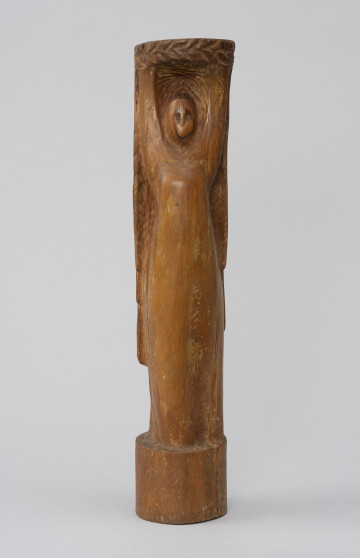
Twilight of Kings
1962
National Museum in Szczecin
Part of the collection: Terracotta from the Niger
The most common carving material used in Africa is wood. Stone is used much less frequently, and clay is the least frequently used material, from which figurines and other cult objects were modelled in some ethnic groups.The African tradition of firing clay sculptures dates to the first millennium BC, as exemplified by finds from the Nok Culture of Central Nigeria or the later terracotta items discovered in the Djenne-Jeno region of modern Mali. In traditional African communities, the sculptor is usually a blacksmith, often belonging to an endogamous professional caste. On the other hand, Clay figure making is the domain of women. They are most often made by one of the blacksmith's wives, who specialises in pottery. The presented object shows a clay head of a human figure with a cylindrical shape and a square face. The figure has a characteristic beard depicted by diagonal incisions. The figure was not fired in the kiln but only dried.
Katarzyna Findlik-Gawron
Author / creator
Dimensions
cały obiekt: height: 11,5 cm, width: 5,9 cm
Object type
sculpture
Creation time / dating
Creation / finding place
Identification number
Location / status

1962
National Museum in Szczecin

between 1957 — 1963
National Museum in Szczecin

circa 1957
National Museum in Szczecin
DISCOVER this TOPIC
National Museum in Lublin
DISCOVER this PATH
Educational path